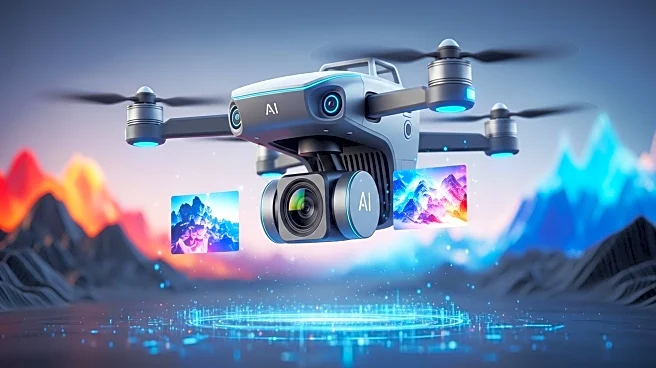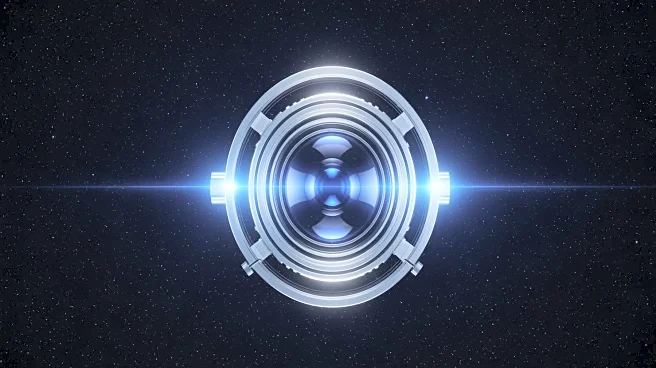What's Happening?
YouTube has unveiled a range of generative artificial intelligence products designed to enhance video creation, particularly focusing on YouTube Shorts. These new tools, powered by Google's DeepMind model Veo 3 Fast, allow creators to generate realistic video and audio, including dialogue and sound effects, from simple text prompts. The initiative is part of YouTube's strategy to compete with platforms like TikTok and Instagram. The AI tools will enable creators to add backgrounds, props, and special effects to their videos, and podcasters will be able to generate video clips from audio content. Additionally, YouTube's conversational AI tool, Ask Studio, will provide feedback and analytics to creators, aiming to be their 'ultimate creative partner.'
Why It's Important?
The introduction of these AI tools by YouTube signifies a major shift in content creation, potentially democratizing access to advanced video editing capabilities. This move could significantly impact the social media landscape, as creators gain new ways to engage audiences and enhance their content. The tools also offer brands new opportunities for collaboration and advertising, potentially increasing their reach and engagement. However, the widespread use of AI in content creation raises concerns about misinformation and unauthorized use of personal likenesses, prompting YouTube to expand access to detection tools to address these issues.
What's Next?
YouTube plans to roll out these AI tools to creators starting early next year, with further enhancements expected in the coming months. The platform will continue to refine its AI capabilities, including improving dubbing technology and introducing a 'speech-to-song' feature. As AI becomes more integrated into social media strategies, other platforms like Meta and X are also investing heavily in AI, indicating a broader industry trend towards AI-driven content creation and management.
Beyond the Headlines
The integration of AI into video creation tools could lead to ethical and legal challenges, particularly concerning the use of AI-generated content that mimics real people. As AI technology advances, platforms will need to establish clear guidelines and safeguards to protect creators' rights and prevent misuse. This development also highlights the growing importance of AI literacy among creators, who must navigate new tools and understand their implications.








